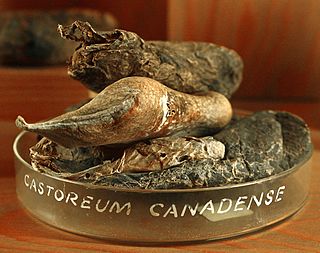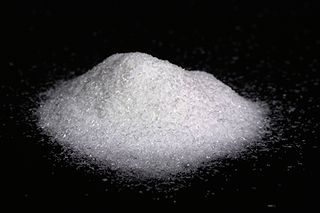
The United States Food and Drug Administration is a federal agency of the Department of Health and Human Services. The FDA is responsible for protecting and promoting public health through the control and supervision of food safety, tobacco products, caffeine products, dietary supplements, prescription and over-the-counter pharmaceutical drugs (medications), vaccines, biopharmaceuticals, blood transfusions, medical devices, electromagnetic radiation emitting devices (ERED), cosmetics, animal foods & feed and veterinary products.

Food additives are substances added to food to preserve flavor or enhance taste, appearance, or other sensory qualities. Some additives have been used for centuries as part of an effort to preserve food, for example vinegar (pickling), salt (salting), smoke (smoking), sugar (crystallization), etc. This allows for longer-lasting foods such as bacon, sweets or wines. With the advent of ultra-processed foods in the second half of the twentieth century, many additives have been introduced, of both natural and artificial origin. Food additives also include substances that may be introduced to food indirectly in the manufacturing process, through packaging, or during storage or transport.

The Pure Food and Drug Act of 1906, also known as the Wiley Act and Dr. Wiley's Law, was the first of a series of significant consumer protection laws enacted by the United States Congress, and led to the creation of the Food and Drug Administration (FDA). Its main purpose was to ban foreign and interstate traffic in adulterated or mislabeled food and drug products, and it directed the US Bureau of Chemistry to inspect products and refer offenders to prosecutors. It required that active ingredients be placed on the label of a drug's packaging and that drugs could not fall below purity levels established by the United States Pharmacopeia or the National Formulary.

Neohesperidin dihydrochalcone, sometimes abbreviated to neohesperidin DC or simply NHDC, is an artificial sweetener derived from citrus.

Generally recognized as safe (GRAS) is a United States Food and Drug Administration (FDA) designation that a chemical or substance added to food is considered safe by experts under the conditions of its intended use. An ingredient with a GRAS designation is exempted from the usual Federal Food, Drug, and Cosmetic Act (FFDCA) food additive tolerance requirements. The concept of food additives being "generally recognized as safe" was first described in the Food Additives Amendment of 1958, and all additives introduced after this time had to be evaluated by new standards. The FDA list of GRAS notices is updated approximately each month, as of 2021.

The Food Additives Amendment of 1958 is a 1958 amendment to the United States' Food, Drugs, and Cosmetic Act of 1938. It was a response to concerns about the safety of new food additives. The amendment established an exemption from the "food additive" definition and requirements for substances "generally recognized as safe" by scientific experts in the field, based on long history of use before 1958 or based on scientific studies. New food additives would be subject to testing including by the "Delaney clause". The Delaney clause was a provision in the amendment which said that if a substance were found to cause cancer in man or animal, then it could not be used as a food additive.

The United States Federal Food, Drug, and Cosmetic Act is a set of laws passed by the United States Congress in 1938 giving authority to the U.S. Food and Drug Administration (FDA) to oversee the safety of food, drugs, medical devices, and cosmetics. The FDA's principal representative with members of congress during its drafting was Charles W. Crawford. A principal author of this law was Royal S. Copeland, a three-term U.S. senator from New York. In 1968, the Electronic Product Radiation Control provisions were added to the FD&C. Also in that year the FDA formed the Drug Efficacy Study Implementation (DESI) to incorporate into FD&C regulations the recommendations from a National Academy of Sciences investigation of effectiveness of previously marketed drugs. The act has been amended many times, most recently to add requirements about bioterrorism preparations.

Castoreum is a yellowish exudate from the castor sacs of mature beavers and platypuses. Both animals use castoreum for various purposes; beavers use it in combination with urine to scent mark their territory, while platypuses use it in reproductive communication.

Senomyx was an American biotechnology company that developed food additives. The company claimed to have "reverse engineered" human taste and aroma receptors. It was founded by Lubert Stryer and Paul Nevsky in 1998. On 17 Sept 2018, private Swiss company Firmenich completed the acquisition of Senomyx.

In the field of pharmacy, compounding is preparation of custom medications to fit unique needs of patients that cannot be met with mass-produced products. This may be done, for example, to provide medication in a form easier for a given patient to ingest, or to avoid a non-active ingredient a patient is allergic to, or to provide an exact dose that isn't otherwise available. This kind of patient-specific compounding, according to a prescriber's specifications, is referred to as "traditional" compounding. The nature of patient need for such customization can range from absolute necessity to individual optimality to even preference.
The Center for Food Safety and Applied Nutrition is the branch of the United States Food and Drug Administration (FDA) that regulates food, dietary supplements, and cosmetics, as opposed to drugs, biologics, medical devices, and radiological products, which also fall under the purview of the FDA.

Glutamate flavoring is the generic name for flavor-enhancing compounds based on glutamic acid and its salts (glutamates). These compounds provide an umami (savory) taste to food.

The regulation of food and dietary supplements by the U.S. Food and Drug Administration is a process governed by various statutes enacted by the United States Congress and interpreted by the U.S. Food and Drug Administration ("FDA"). Pursuant to the Federal Food, Drug, and Cosmetic Act and accompanying legislation, the FDA has authority to oversee the quality of substances sold as food in the United States, and to monitor claims made in the labeling about both the composition and the health benefits of foods.
Bell Flavors & Fragrances is an American multinational manufacturer of flavors, fragrances, botanicals and ingredients, privately owned by the Heinz family. It was founded in 1912 as the William M. Bell Company in Chicago, Illinois. The founder had previously been a flavor chemist with Kraft Foods in their confectionery and caramel division. In the early years, Bell sold his flavors to local shops and candy companies.

The Food Safety Modernization Act (FSMA) was signed into law by President Barack Obama on January 4, 2011. The FSMA has given the Food and Drug Administration (FDA) new authority to regulate the way foods are grown, harvested and processed. The law grants the FDA a number of new powers, including mandatory recall authority, which the agency had sought for many years. The FSMA requires the FDA to undertake more than a dozen rulemakings and issue at least 10 guidance documents, as well as a host of reports, plans, strategies, standards, notices, and other tasks.
The Food and Drug Administration is a federal agency of the United States, formed in 1930.

The Dietary Supplement Health and Education Act of 1994 ("DSHEA"), is a 1994 statute of United States Federal legislation which defines and regulates dietary supplements. Under the act, supplements are regulated by the FDA for Good Manufacturing Practices under 21 CFR Part 111. The act was intended to exempt the dietary and herbal supplement industry from most FDA drug regulations, allowing them to be sold and marketed without scientific backing for their health and medical claims.
The Food Chemicals Codex (FCC) is a collection of internationally recognized standards for the purity and identity of food ingredients.

The Proxmire Amendments were a series of legislation that prohibited the Food and Drug Administration from monitoring and limiting the potency of vitamins and minerals found in dietary supplements. The Proxmire Amendment also made it so that food supplements could not be classified as drugs, making their sale possible without a prescription from a doctor. According to a study done, "dietary supplements fall into the following categories: vitamins, minerals, herbs or other botanicals, amino acids, animal-derived products, hormones and hormone analogues, enzymes, and concentrates, metabolites, constituents, or extracts of these." They can be used by anyone wishing to purchase them as much or as little as they desire. Dietary supplements can be used to increase productivity, treat illness, help mental health such as depression and anxiety, enhancing mental abilities, building muscle, or losing weight, among many other uses. William Proxmire, a Senator for Wisconsin, was instrumental in influencing the passing the Proxmire Amendment. The Proxmire Amendment is also known as The Rogers-Proxmire Amendment of 1976, and The Vitamins and Minerals Amendments. This amendment became section 411 of the Federal Food, Drug, and Cosmetic Act.










